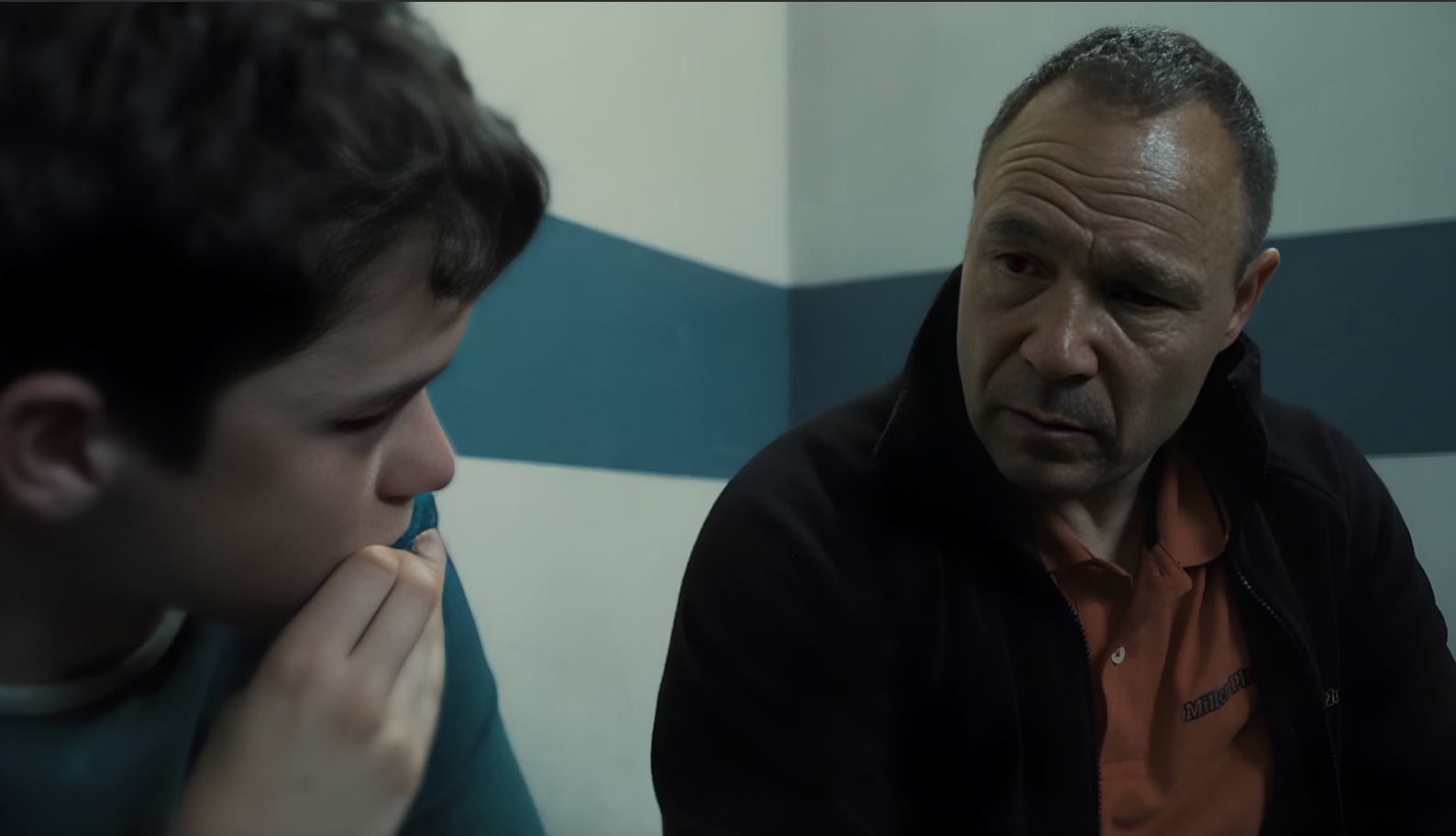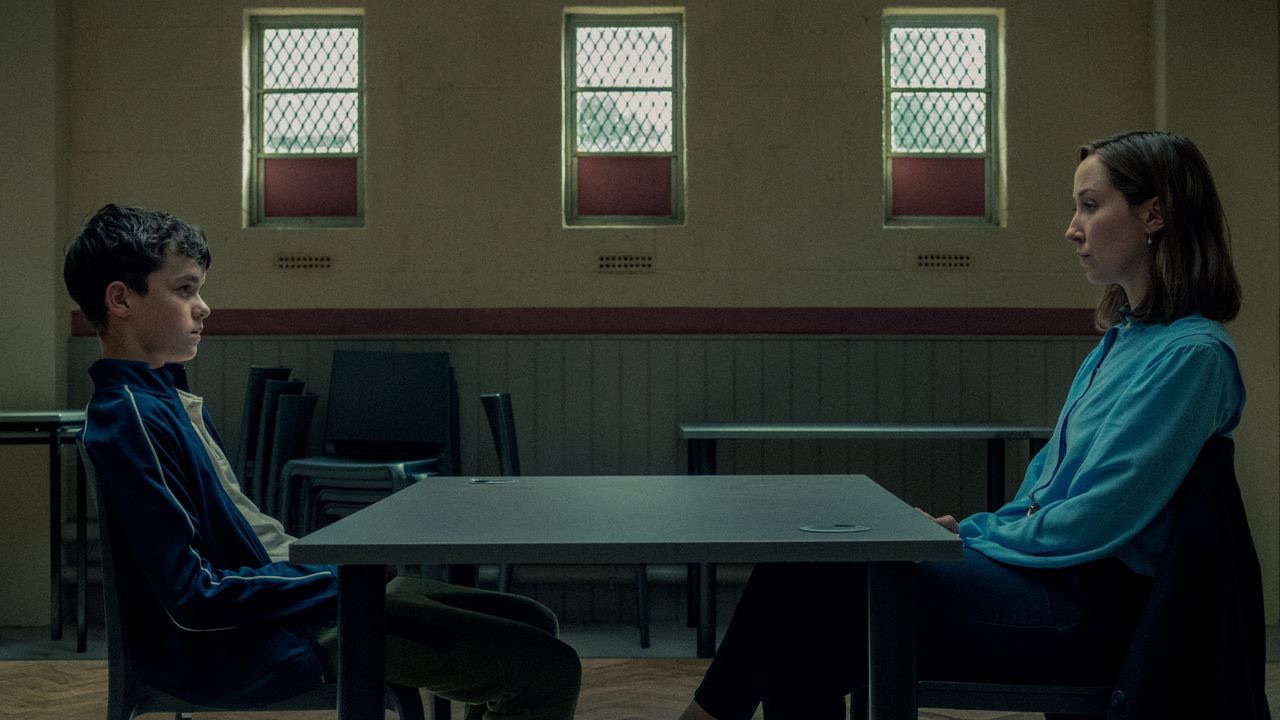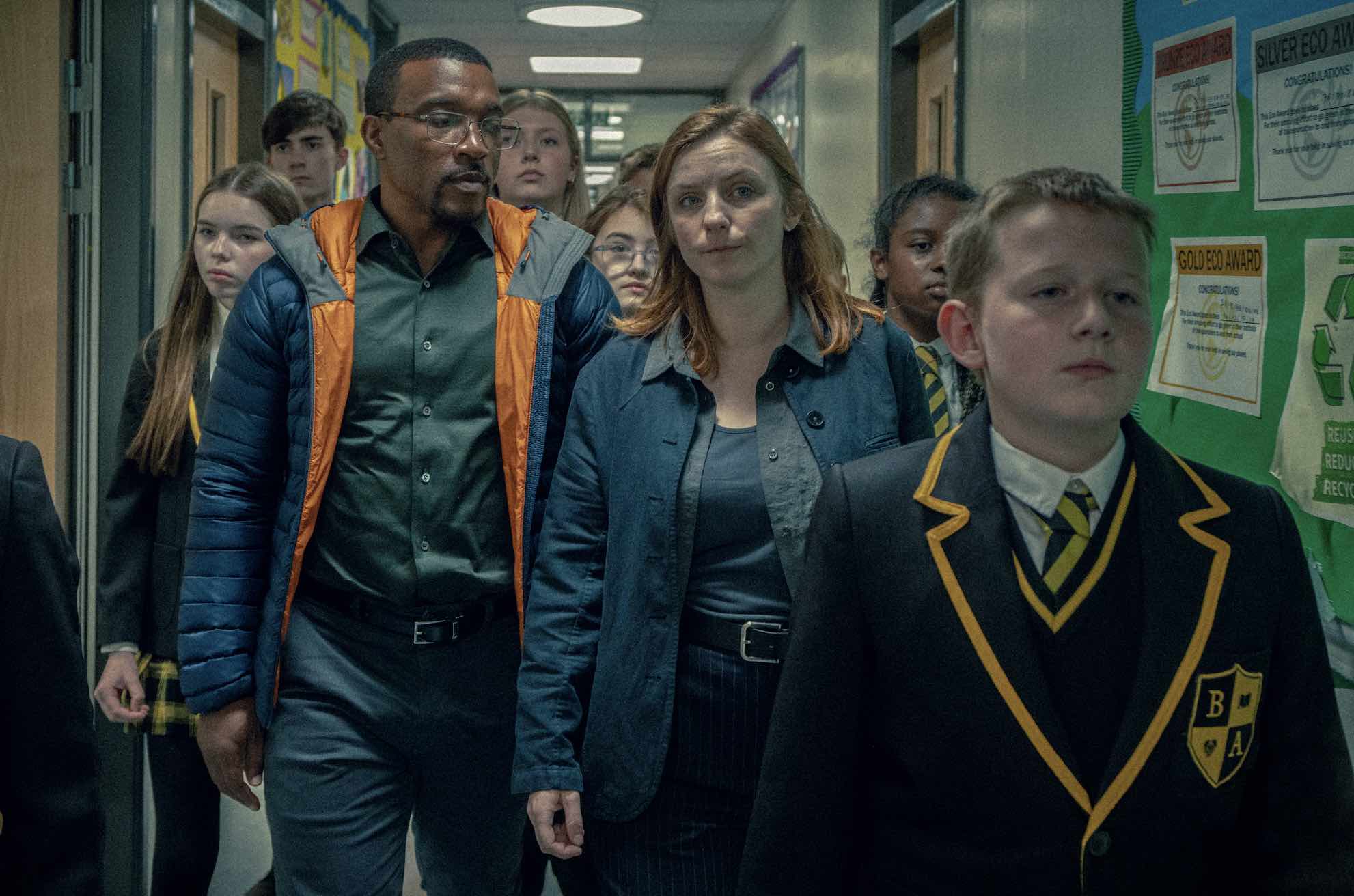REVIEW: Compulsive and uncompromising, Netflix's 'Adolescence' is a must-watch
Warning: This review contains spoilers from Adolescence.
While many would agree that it takes a village to raise a child, such communal sentiments tend to evaporate when said child murders one of their classmates. This isn’t to say that multiple players and factors didn’t play a role, of course, but good luck getting anyone to admit it. This is just one of the many troubling ideas at work in Adolescence, the four-episode drama that’s taken Netflix by storm since it debuted in mid-March. Given the series’ themes and subject matter, parents should note that this is absolutely not a show for children or viewers of sensitive dispositions.
Adolescence opens in media res, with a police convoy converging on a nondescript suburban household. Breaking down the door, fully armed officers arrest thirteen-year-old Jamie Miller (Owen Cooper, in his screen debut) for the brutal murder of his classmate, Katie. With his family watching, Jamie is placed into a police vehicle, as patriarch Eddie (Stephen Graham, Boardwalk Empire) shouts for the boy to refrain from saying anything. We then see Jamie being processed for custody, as the authorities attempt to make sense of the crime they’ve remanded him for.

The first episode is an exercise in relentless efficiency—from the first sequence alone, the show’s premise and primary characters are introduced, and the pace never slows from there. With each installment being presented as one unbroken shot, information and events are presented to the viewer in real time, with the lack of (visible) editing resulting in an unerringly intimate, ultimately suspenseful viewing experience.
Perhaps most intriguing, and certainly what’s caused the greatest amount of real-world discussion, is how Adolescence never once asks its viewers to consider whether or not Jamie committed the crime he’s been accused of, but, rather, why he did it. We find out early on that they’ve got him dead to rights—CCTV footage shows him doing it, yet it’s hardly the most horrifying thing the series presents us with.
According to Graham, who also co-created the show, the crux of Adolescence lies in society’s perception of masculinity, and how social media, celebrity culture, and accountability (or lack thereof) play a part. Speaking with CNN International on divining what would drive someone to commit a knife crime, Graham said, “We were trying to build a complicated portrait of masculinity: of how we were made and how teenagers are being made in a lot of similar ways, but with a lot of differences, too.”
The perfect example of this can be seen in the show’s second episode where Detective Inspector Luke Bascombe (Ashley Walters) and Detective Sergeant Misha Frank (Faye Marsay) go about trying to discover the reality behind Jamie’s assertions of innocence. As the detectives conduct an old-fashioned police investigation, it is only through a strained conversation with Bascombe’s son that the latter discovers how out of their depth they are. The detective’s reaction to the definition of a red pill emoji—from a teen who’d likely never heard of The Matrix– says it all, and who can blame him, really? Police training probably never covered the effects of cyberbullying, much less the rage-centric incel (involuntary celibate) culture fostered by the likes of Andrew Tate and his ilk.
Where the police are concerned with facts, nearly the entire third episode has psychologist Briony Ariston (Erin Doherty, The Crown) attempting a deep dive into Jamie’s emotional state to understand the psychological reasons for his actions. What begins with pleasantries and light repartee dives into a verbal sparring match when Ariston touches on the boy’s views on members of the opposite sex. “I’m ugly,” the boy states, when asked why the victim may not have liked him. Things devolve further when he gives his opinions on women’s bodies (“flat” is undesirable), consent (“I thought she’d like me when she was weak”), and social media (“I need to see what people are posting”).

As Jamie, Cooper commands the viewer’s attention, pivoting from wide-eyed innocence to impotent rage on a dime, yet doing it so naturally that it never feels put-upon or pandering to the viewer. Exuding intelligence, pathos, and nuance, this is the sort of breakthrough performance that careers are built on, and no viewer will ever likely forget. The fact that it’s Cooper’s first screen acting credit elevates it from extraordinary to the downright legendary—this kid is properly brilliant, and terrifying to behold.
At one point, Jamie makes reference to the 80/20 rule (80% of women will only ever like 20% of men) that incels use to validate their actions. The matter-of-fact way in which Jamie tries to justify everything from playing head games and a general sense of entitlement, to actual violence against women, is chilling. It’s highly unlikely that any formal indoctrination happened here, it’s just the way that social media has taught him to think and perceive the world. Does that make him more responsible for what the police are saying he’s done, or less? In any case, there’s a reason that Jamie’s suitability to stand trial is being called into question, and when he outright begs for the psychologist’s approval, it’s beyond tragic.
While we never actually see the crime or hear from the victim’s family, we do see the effects that it has on the Coopers. A blue collar worker through and through, Graham’s Eddie is a plumber by trade; he’s never had to navigate the perils of social media, and his high school experience was nigh unrecognizable to what his children face on the daily. Indeed, hearing of Eddie’s and wife Manda’s (Christine Tremarco) love story as A-Ha’s Take on Me plays, the speed at which the world changed in the years since becomes all too clear.

As Graham told CNN, “As I was leaning in and trying to understand, I actually found a lot of things that were surprising to me,” and a lot of ideas that, if I’d heard them at the wrong time, would have taken me on journeys that I’m very grateful I didn’t go on.”
A simple man, Eddie simply isn’t built for the emotional gauntlet he’s faced with here, and when he finally confronts his son’s actions and breaks down, it’s devastating. Jamie’s story is the manifestation of every parent’s greatest nightmares, presenting to viewers as a bleak, emotionally draining indictment of the horrors facing teens today. While it’s not something you’re ever likely to watch twice, it should be compulsory viewing for anyone trying to make sense of the world today, if only to let them know: We’re all in this together.
Nobody ever said growing up was easy.
Adolescence is available for streaming on Netflix. Watch the trailer below.


